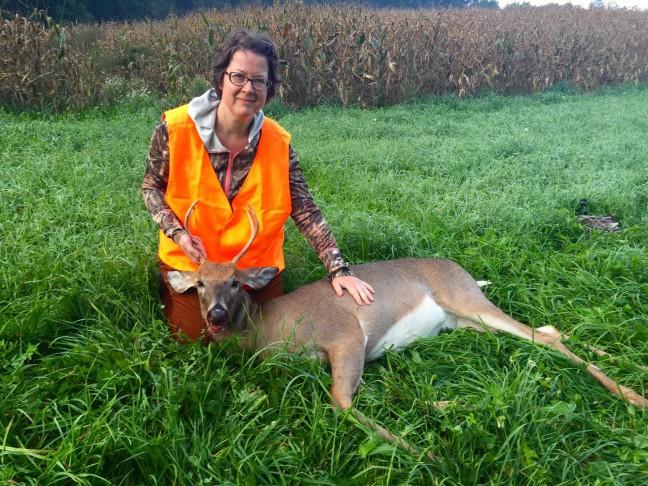When many think of hunting, images of waking up in pre-dawn hours, braving Arctic air and sitting in deer stands for countless hours often come to mind. In response to the recent decline in hunting’s popularity, the sport’s advocates are working to highlight the positives surrounding its sustainability, and give people the know-how to begin hunting their own food.
The Wisconsin Department of Natural Resources has been working to integrate people into hunting culture through a series of Learn to Hunt programs.
Keith Warnke, the hunting and shooting sports coordinator at the DNR, created the Learn to Hunt programs. His daughter, who was conflicted on becoming a vegetarian, but decided to make eating hunted meat an exception inspired him.
His daughter’s ideology, and an increasing cultural emphasis on organic, locally sourced and sustainable food, sparked Warnke’s interest. A program could educate the environmentally-inclined on the benefits of hunting.
The Learn to Hunt programs take place on a weekly basis and teach participants to handle firearms, butcher, field dress an animal and scout for deer. It also teaches participants how to cook the meat, providing an all-inclusive instruction from beginning to end.
“By the end of [the program], students have gained those skills and that knowledge, know how to handle a gun safely, have been on a hunt and are hunting certified,” Warnke said.
These programs are fighting against a decreasing hunter population, which Tim Van Deelen, an expert in wildlife ecology at the University of Wisconsin, presumes is mostly due to an aging generation of men that have become too busy.
“It used to be that the uncles, grandpas, dads and cousins would all drive up to camp somewhere in the north and hunt for a week,” Van Deelen said. “We see less and less of that sort of thing and more of a situation where hunters are just trying to fit it in.”
Whether the cause lies in an overscheduled family life or the Packer game being too high of a priority to miss, hunting has taken a back seat in the past 20 years. But that’s not to say this trend will continue.
In the past couple years, there has been an uptick in hunting due to the Learn to Hunt programs put on by the DNR. These programs are roughly half female and half male, a surprising statistic regarding what has always been a predominantly male activity.
The recent interest from women and those not from a hunting background can be attributed to a more educated population looking at hunting as a way to help the environment, not hurt it. Hunting can help reduce disruptive animal populations that damage agriculture and also creates revenue that goes back to the environment.
“Hunters, through license sales and excise taxes, pay for the vast majority of natural resources management,” Warnke said. “Wetland restoration, prairie restoration, prairie habitat establishment and some forest management is paid for through these expenses, not through taxpayer dollars.”
While participating in hunting helps the environment, hunting also creates a connection to food and surroundings in a way that nothing else can.
“Ideally hunting should develop a sense of perception with regard to the environment,” Van Deelen said.
In Van Deelen’s experience — though every group has its “bad apples” — most hunters have created a strong connection to nature and work hard to be respectful of the animals and their environments.
The payoff of respect for wildlife is the ability to eat local, organic, free range meat from a sustainable source. The DNR’s Learn to Hunt programs help people of all backgrounds reach that connection with nature.
“My favorite part of teaching these courses is that great big culmination of watching all the efforts come together, all the skills and all that enjoyment that everyone gets out of it,” Warnke said.














